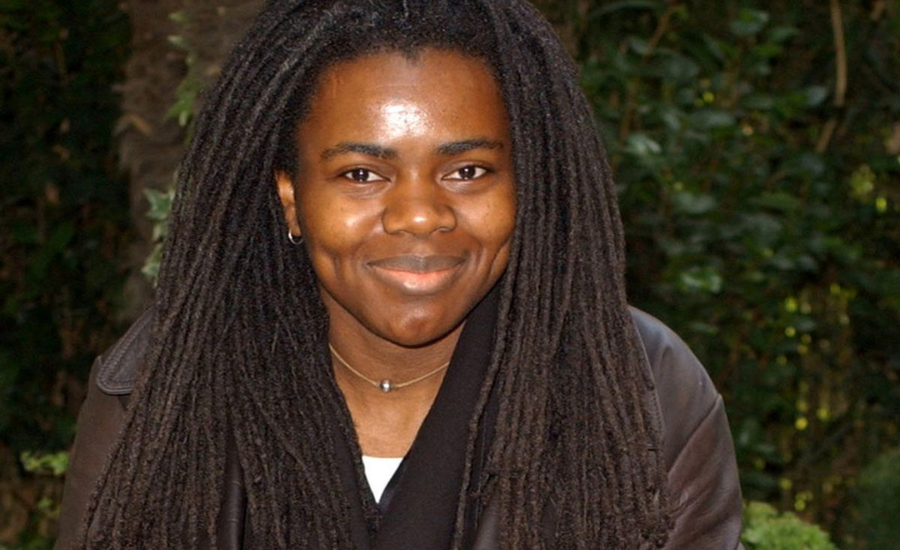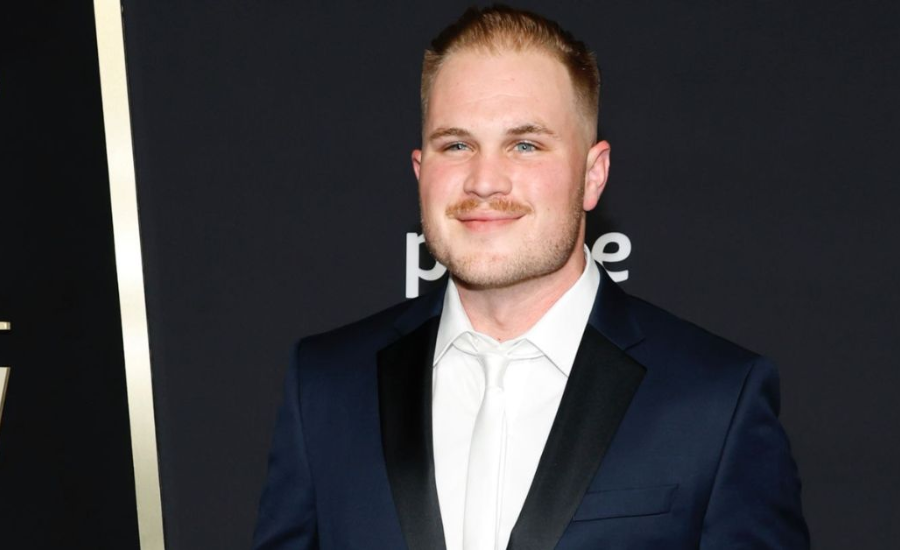Tracy Chapman, an American singer-songwriter and activist, has captivated audiences worldwide with her emotive folk-rock sound and insightful lyrics. Rising to prominence in the late 1980s, Chapman’s music has resonated deeply with themes of love, social justice, and political change. With an enduring legacy that spans decades, she remains an influential figure in the music industry, not just for her commercial success but also for her profound impact on the singer-songwriter genre.
Net Worth and Enduring Influence
As of 2024, Tracy Chapman net worth is estimated at $6 million. While modest compared to some industry giants, her wealth reflects a career built on authenticity, artistry, and a commitment to meaningful storytelling. Chapman’s influence extends far beyond financial success, as her music continues to inspire generations of artists and listeners alike.
Early Life: A Journey Shaped by Challenges
Tracy Chapman was born on March 30, 1964, in Cleveland, Ohio. Raised by her mother following her parents’ divorce when she was just four years old, Chapman grew up in challenging circumstances. Despite financial struggles, her mother nurtured her budding musical talent by buying her a ukulele at the age of three. By the time she was eight, Chapman had started playing guitar and writing songs, showcasing her musical inclination from an early age.
Growing up during the desegregation of public schools, Chapman faced racial intolerance, bullying, and ostracism. However, her perseverance and talent earned her a spot in A Better Chance, an educational program designed to help underprivileged children access quality private education. This opportunity led her to the Wooster School in Danbury, Connecticut, where her friends even helped her buy a better guitar during her first year. After graduating, Chapman pursued higher education at Tufts University, initially aiming to become a veterinarian before switching her major to anthropology.
Discovering Her Voice in College
While at Tufts University, Chapman continued to hone her craft, performing publicly and writing songs that addressed social issues. It was during her time there that she crossed paths with Brian Koppelman, who later became a prominent screenwriter and television creator. Koppelman introduced Chapman to his father, who managed the independent music publishing company SBK. After seeing Chapman perform live, the senior Koppelman recognized her immense talent and worked tirelessly for six months to secure her a record deal with Elektra Records
The Breakthrough: Chart-Topping Success
In 1988, Chapman released her self-titled debut album, which became a critical and commercial triumph. Featuring timeless hits like “Fast Car,” “Talkin’ ’bout a Revolution,” and “Baby Can I Hold You,” the album quickly topped the Billboard 200 chart, selling over a million copies within two weeks. “Fast Car” emerged as a standout single, peaking at #6 on the charts and solidifying Chapman’s place in the music industry.
Her debut album earned seven Grammy nominations and won three awards, including Best New Artist. It remains one of the best-selling albums of all time, setting the stage for Chapman’s remarkable career.
Exploring Deeper Themes in Subsequent Albums
Following the success of her debut, Chapman released “Crossroads” in 1989. While it didn’t achieve the same level of commercial success, it showcased her growth as a co-producer and delved into darker, more socially conscious themes. The album peaked at #9 on the Billboard 200.
In 1992, her third album, “Matters of the Heart,” received mixed reviews and charted at #53. However, Chapman returned to prominence with her 1995 album, “New Beginning.” This album featured the Grammy-winning single “Give Me One Reason,” which peaked at #3 on the Billboard Hot 100 and remains one of her most recognizable songs. “New Beginning” achieved five-times Platinum status and marked a significant comeback for Chapman.
The 2000s and Beyond: Evolving as an Artist
After taking a five-year hiatus, Chapman released “Telling Stories” in 2000, which was well-received by critics and audiences alike. The album’s title track gained widespread airplay in both the United States and Europe. Over the next few years, Chapman released several more albums, including “Let It Rain” (2002) and “Where You Live” (2005), each showcasing her lyrical depth and unique musical style. While these later works didn’t achieve the same commercial success as her earlier albums, they reinforced her reputation as a thoughtful and socially conscious artist.
A Legacy of Social Activism
Chapman’s music has always been deeply intertwined with her activism. Over the years, she has used her platform to raise awareness about social and human rights issues. In 2004, she received an honorary doctorate in Fine Arts from Tufts University, a testament to her contributions to the arts and society. She has supported numerous charities, including the San Francisco AIDS Foundation, and has worked to improve resources for underprivileged children in her hometown of Cleveland. Additionally, Chapman sponsored the “Crossroads in Black History” essay contest, encouraging high school students to engage with historical and cultural themes.
Chapman has remained private about her personal life, focusing instead on her music and activism. She has never been married, maintaining a low profile even as her music continues to inspire millions
Legal Battles and Recognition
In 2020, Chapman won a copyright infringement lawsuit against rapper Nicki Minaj, receiving a $450,000 judgment. The lawsuit stemmed from Minaj’s unauthorized use of Chapman’s song “Baby Can I Hold You” as inspiration for her track “Sorry.” This victory underscored Chapman’s commitment to protecting her artistic integrity.
A Resurgence with Luke Combs’ “Fast Car”
In 2023, country artist Luke Combs released a cover of Chapman’s iconic hit “Fast Car” on his album “Gettin’ Old.” The cover reached #2 on the Billboard Hot 100 and #1 on the Hot Country Songs chart, making Chapman the first Black artist to achieve a #1 hit on the country charts with a solo composition. Combs’ rendition brought renewed attention to Chapman’s music, introducing her work to a new generation of listeners.
Chapman and Combs performed the song together at the 2024 Grammy Awards, a moment that highlighted the timeless appeal of her music. The cover also won them the Country Music Association (CMA) Award for Song of the Year, further cementing Chapman’s enduring influence on contemporary music.
Conclusion
Tracy Chapman’s journey from a challenging childhood in Cleveland to becoming a global music icon is a testament to her talent, resilience, and dedication. Her ability to craft songs that resonate deeply with audiences, combined with her unwavering commitment to social justice, has solidified her place in music history. Whether through her timeless hits or her impactful activism, Chapman’s legacy remains as powerful as ever, reminding us of the enduring power of music to inspire change.
FAQs
Q: Who is Tracy Chapman?
A: Tracy Chapman is an American singer-songwriter and activist known for her emotive folk-rock sound and poignant lyrics. She rose to fame in the late 1980s with hits like Fast Car and Talkin’ ’bout a Revolution.
Q: When was Tracy Chapman born?
A: Tracy Chapman was born on March 30, 1964, in Cleveland, Ohio.
Q: What is Tracy Chapman’s net worth?
A: As of 2024, Tracy Chapman’s net worth is estimated at $6 million.
Q: What are Tracy Chapman’s most famous songs?
A: Some of her most iconic songs include:
- Fast Car
- Talkin’ ’bout a Revolution
- Baby Can I Hold You
- Give Me One Reason
Q: What was Tracy Chapman’s breakthrough album?
A: Her self-titled debut album, released in 1988, was her breakthrough. It featured timeless hits like Fast Car and Talkin’ ’bout a Revolution, earning her critical and commercial success.
Q: What awards has Tracy Chapman won?
A: Chapman has won multiple Grammy Awards, including:
- Best New Artist (1989)
- Best Contemporary Folk Album (Tracy Chapman, 1989)
- Best Rock Song (Give Me One Reason, 1997)
Q: What is the significance of Luke Combs’ cover of Fast Car?
A: Luke Combs’ 2023 cover of Fast Car reached #1 on the Hot Country Songs chart, making Tracy Chapman the first Black artist to achieve a #1 hit on the country charts with a solo composition.
Q: What are Tracy Chapman’s contributions to activism?
A: Chapman has used her platform to advocate for social justice and human rights. She has supported charities like the San Francisco AIDS Foundation and sponsored initiatives like the “Crossroads in Black History” essay contest for high school students.
Q: What is Tracy Chapman’s educational background?
A: Chapman attended Tufts University, where she initially studied to become a veterinarian but later switched her major to anthropology.
Q: Did Tracy Chapman face challenges growing up?
A: Yes, she grew up in Cleveland in financially challenging circumstances and faced racial intolerance during the desegregation of public schools. Her perseverance and talent led her to opportunities like the A Better Chance program and eventually to a successful music career.
Q: What is Tracy Chapman’s connection to Nicki Minaj?
A: In 2020, Chapman won a copyright infringement lawsuit against Nicki Minaj for the unauthorized use of her song Baby Can I Hold You as inspiration for Minaj’s track Sorry
Q: Has Tracy Chapman collaborated with Luke Combs?
A: Yes, Chapman and Combs performed Fast Car together at the 2024 Grammy Awards, highlighting the timeless appeal of the song.
Stay in touch for more updates and alerts visit: Hint Insider!




